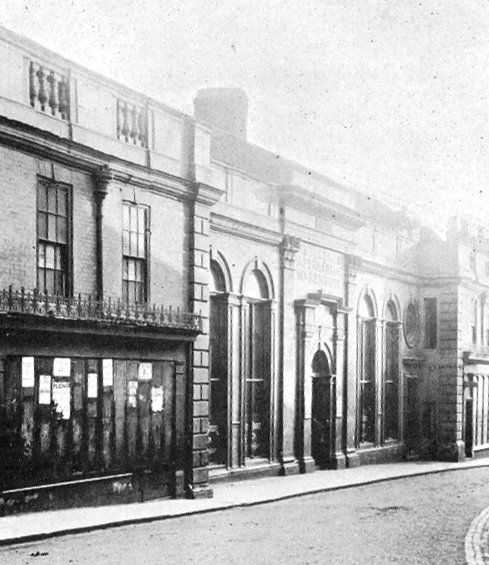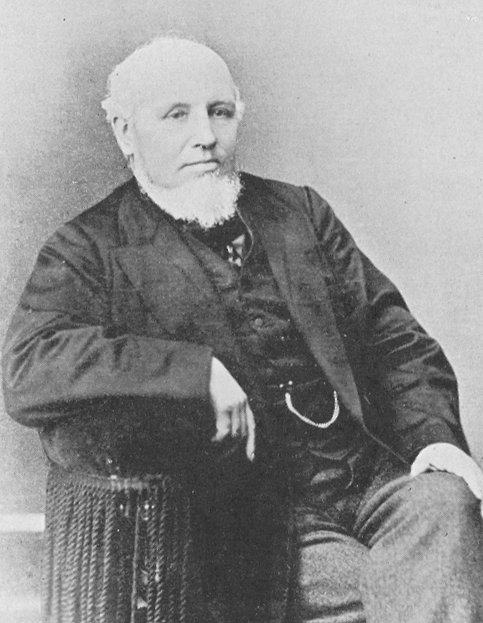|
The
Working Men's College
For a time the Athenaeum had a
rival. The following announcement appeared in the
Wolverhampton Chronicle on the 9th September,1857: |
| A number of the leading clergymen,
professional and businessmen of the town
have united themselves together as a council
of voluntary teachers, for the purpose of
promoting the establishment in the town of a
new educational institution, to be styled
the Wolverhampton Working Men’s College. |
|
|

The Working Men's College in
John Street. |
Permission was given for the use of the old
grammar school building in John Street, which was
unoccupied.
It had an adjoining house that could be used as
the residence for a live-in school master.
The range of subjects to be taught included
natural history, philosophy, geometry, the laws of
political economy, and logic.
Students had to be over the age of 16, be able to
read and write and be acquainted with basic maths.
The entrance fee was two shillings and six pence,
with a subscription of two shillings per term for
each class. |
| The college opened on the 19th October, 1857 and
offered the following classes: |
| A bible class, given by the
Rev. T. H. Campbell; English language and literature,
given by the Rev. J. Lloyd; Latin, given by Mr. J. N.
Langley; English Grammar, given by Mr. J. E. Underhill
and Mr. James Gibbs; Book keeping, given by Mr. Forsyth;
Algebra, given by the Rev. T. H. Campbell; Arithmetic,
given by Mr. J. Emery and Mr. Brevitt; Vocal music;
French, given by Mr. Davies and Mr. French; Chemistry,
given by Mr. Brevitt; A discussion class; and Geology
and Mining, given by Mr. Henry Beckett and Mr. Thomson. |
|
By 1864, the student success rate had grown. The
college presented six first class certificates,
eleven second class certificates and thirteen third
class certificates.
Things soon started to go wrong. The Rev. T. H.
Campbell, headmaster of the Grammar School drowned
while on a voyage to New Zealand. He had actively
promoted the college and encouraged the voluntary
teachers to work there.
Some of them lost their enthusiasm for the college
after his death and resigned.
The number of students fell to an all time low. At
the end of 1864 there were only 45 students, whose
fees were insufficient to cover the annual running
cost of £60.
In the autumn of 1865 the college closed. |

Mr. J. N. Langley, Latin
teacher. |
 |
|
 |
|
 |
Return
to the
Mechanics' Institute |
|
Return to
the contents |
|
Proceed to the Free Library
Act |
|